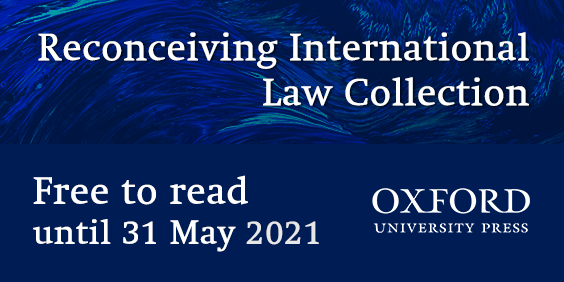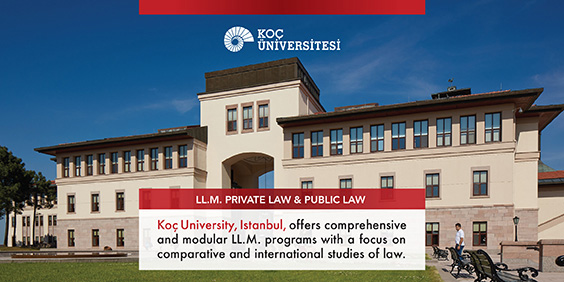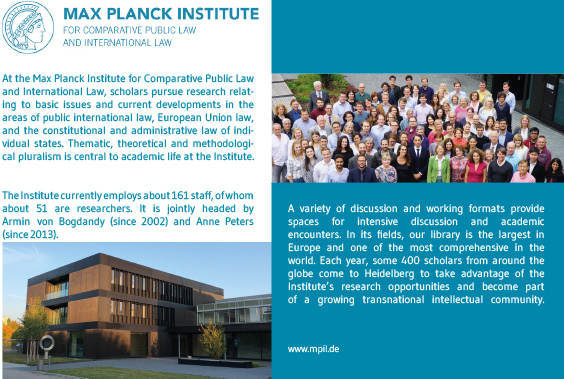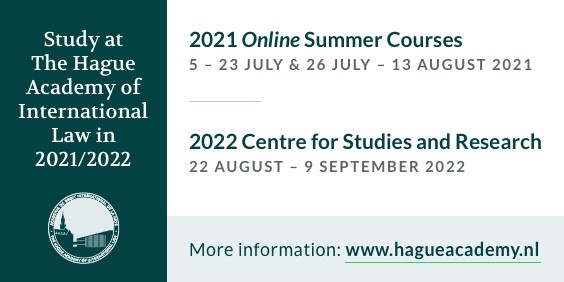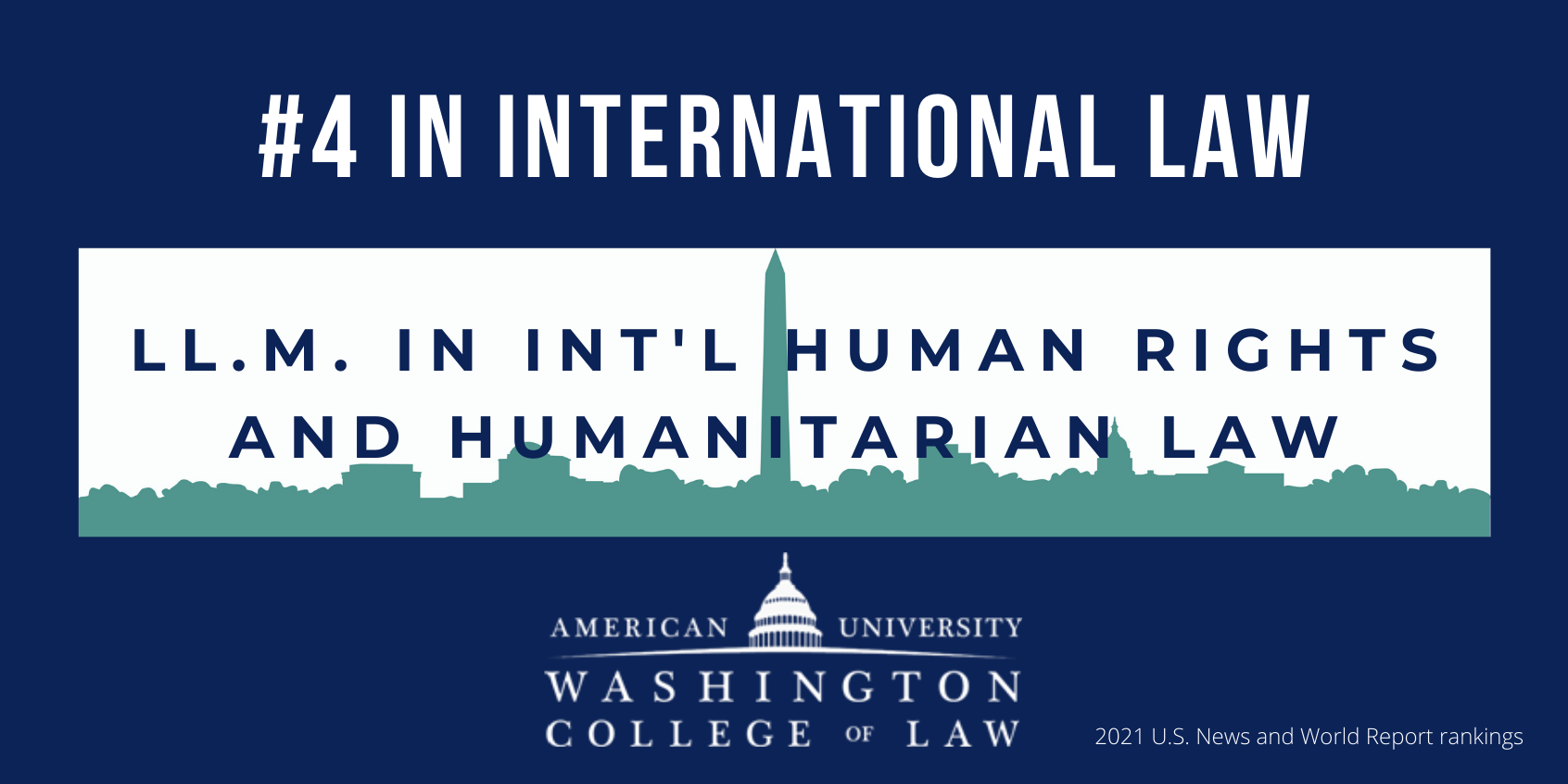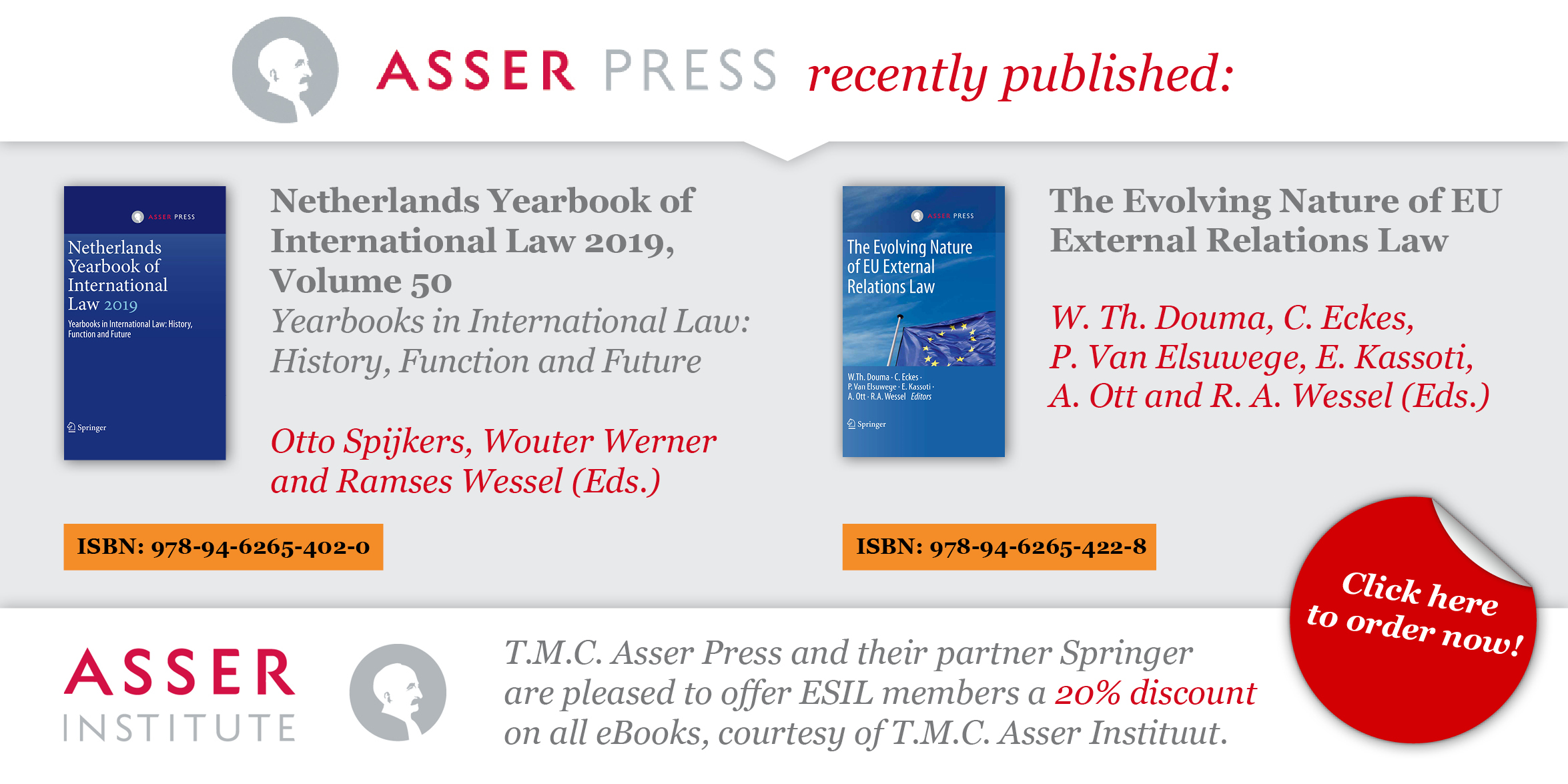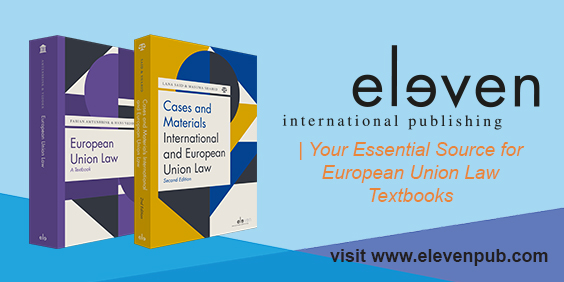ESIL Newsletter: Spring 2021
Editor: Sandrine Maljean-Dubois (University of Aix-Marseille)
 In this issue
In this issue
1. President’s Message: Celebrating Birthdays and Looking Ahead

I start this message by extending warm wishes on behalf of the Society to Bruno Simma who is celebrating his 80th birthday this month. Professor and Judge Bruno Simma is of course well-known to the community of international lawyers, and is indeed ‘a lighthouse of international law’, to quote our colleague Wolfgang Munch. But apart from his achievements and brilliant career, the Society pays tribute to one of the spiritual fathers and founding members of ESIL, and the first President of this Society (2004-2006). I am sure that there will be further opportunities to celebrate his birthday year, and I hope that the Society will continue to build on the groundwork of those who founded it in 2004!
Looking ahead, we will meet in Catania, virtually, on 15-16 April (due to COVID-19 restrictions), for our Annual ESIL Forum organized by the Department of Law of the University of Catania. The Annual Fora seek to promote engagement with research in progress, in particular by scholars at an early stage of their careers. Also an opportunity to give voice to young scholars and thus ensure continuity of past and future! This year’s Forum entitled: Solidarity: The Quest for Founding Utopias of International Law, aims to inspire reflections on the genealogy of international solidarity by focusing on the actors, norms and processes influencing its evolution over time. Most surely, the theme is also timely, in the context of the quest for international solidarity to address the effects of the global pandemic, in particular the equitable distribution of vaccines. Pre-Forum IG workshops will also take place on April 15. Registration is open until April 8, please keep posted by visiting the Forum website: http://www.2021esilcatania.unict.it/
The Society continues to engage with sister societies. In this context, on 12 March the European Society of International Law co-sponsored an online event with the American Society of International Law entitled: At Home and Abroad: The European Union Legal Order in a Changing Global Order. This event formed part of the ASIL’s Annual Meeting (24-26 March 2021), in the Global Engagement Series of ASIL on: Reconceiving America’s Global Role in the Biden Era: International Perspectives. It focused on regionally specific issues of international law and policy that stand to be impacted by the new Biden-Harris Administration. Members and colleagues from both Societies participated in this virtual session, and we thank our own Neha Jain for coordinating this event. In this context, I will be representing the Society at a virtual breakfast meeting organized by the ASIL during its Annual Meeting this March, and I look forward to engaging with sister societies on that occasion.
As always, this Newsletter provides information on our recent activities and events, which have been continuing, despite the pandemic, and, as always, we encourage your involvement in all our activities.
Photini Pazartzis
ESIL President
2. Guest Editorial: Rebooting Global Trade Governance to Bolster Environmental Sustainability

Harro van Asselt
As I write this, several European countries, including my home country of the Netherlands, are barrelling towards a third wave of Covid-19. The causes and impacts of the pandemic, as well as the responses it has engendered, are intertwined with various areas of international governance in complex ways, but perhaps one of its most concrete short-term effects has been on multilateral diplomacy.
Specifically, Covid-19 led to the postponement of three major international meetings initially planned for 2020. The UN Biodiversity Conference (COP-15) in Kunming was moved to October 2021; the UN Climate Conference (COP-26) in Glasgow is now scheduled for November; and the 12th WTO Ministerial Conference (MC-12) will now take place at the WTO headquarters in Geneva in November/December.
The stakes are high at each of these meetings. At COP-26, States must respond to the dire warning that their climate action plans are ‘nowhere close’ to staving off dangerous climate impacts. At COP-15, Parties to the Biodiversity Convention similarly need to face their lack of progress in achieving the voluntary Aichi Targets for 2020, and decide on a strategic action plan for the coming decade. Lastly, WTO Members at MC-12 need to tackle the paralysis of the Organization’s supreme judicial body, ongoing economic nationalism (not least ‘vaccine nationalism’), and, fundamentally, disagreements over the purpose of the Organization. Rebooting the WTO in the current circumstances will be daunting, but it also presents a unique opportunity to reconsider the functioning of the Organization in light of other global challenges, notably the climate and biodiversity crises.
The ‘trade and environment’ debate has been characterised by questions on the legality of unilateral trade measures with extraterritorial effect, and of regulating ‘processes and production methods’ (e.g. carbon footprint standards). These questions remain of relevance, as illustrated by recent disputes concerning the EU’s biofuel sustainability criteria, and threats to challenge the EU’s planned ‘carbon border adjustment mechanism’ before the WTO. Yet what has been left by the wayside is the broader question of how trade agreements can be designed and implemented to achieve environmental sustainability.
At the regional level, States have shown a willingness to experiment with environmental provisions in their trade agreements, and introduced new ways to enforce such provisions. Six small trading nations – Costa Rica, Fiji, Iceland, New Zealand, Norway, and Switzerland – have gone even further by launching negotiations on a new Agreement on Climate Change, Trade and Sustainability, through which they seek to curtail environmentally harmful fossil fuel subsidies, liberalise trade in environmental and goods and services, and develop guidelines for voluntary ecolabelling.
In November 2020, 53 WTO Members further indicated their eagerness to ensure the WTO contributes to environmental protection by launching ‘structured discussions’ on trade and environmental sustainability. MC-12 provides an opportunity to build on this momentum. While it is unlikely that progress will be made on controversial issues such as trade-related climate policies, an obvious start will be for Members to conclude at long last the negotiations on an agreement on unsustainable fisheries subsidies. Further steps include relaunching the stalled negotiations on a plurilateral Environmental Goods Agreement, developing rules for fossil fuel subsidies, and greening aid for trade. Such concrete actions should be supported by establishing institutional structures that can facilitate the identification of new ways through ways States can advance environmental sustainability through their trade policies.
In the wake of the pandemic, a green economic recovery will be essential. Trade agreements can play their part in achieving this.
3. What’s Going On?
 2021 ESIL Research Forum
2021 ESIL Research Forum
In light of COVID-19 restrictions, the upcoming 2021 ESIL Research Forum “Solidarity: The Quest for Founding Utopias of International Law” due on April 15th and 16th, 2021 will be held in remote mode only. All attendants must register here by April 8th, 2021. For assistance and information, please visit the conference website or contact the local secretariat: 2021esil.rf.catania@lex.unict.it
 2021 ESIL Annual Conference
2021 ESIL Annual Conference
The XVI Annual Conference of the European Society of International Law in Stockholm, rescheduled for 9-11 September 2021, will be held with the same program as originally planned for 2020. We plan for a live conference, but we cannot rule out the need to change to an online or a hybrid format. We advise colleagues to consult the conference website for news (www.esil2021.se). Due to the fluidity of the situation, registration is not yet open, but we will inform all members via email when it is. We hope to see you all safely in September!
- The list of all the other ESIL events can be found here
4. Meet an ESIL Member
 This is a new initiative for our members to get to know each other.
This is a new initiative for our members to get to know each other.
You can find the 1st video introducing Dimitri Van Den Meerssche here.
5. ESIL Teaching Corner
 La diversité linguistique and the ESIL Teaching Corner
La diversité linguistique and the ESIL Teaching Corner
As an ESIL member, you have access to the ESIL Teaching Corner, which is an online resource for ESIL members to share syllabi, module outlines, reading lists, and other international law teaching materials and tools. As things currently stand, we have few materials in languages other than English. We invite you to post material in other languages as well- reflecting the linguistic diversity of international law education in Europe. Our idea is to encourage the dissemination of examples and good practice amongst ESIL members, and especially to provide support for early-career researchers who may be designing a course for the first time and simply support each other in teaching preparations.
For more information on the Teaching Corner and how to use it, please visit https://www.ejiltalk.org/professional-solidarity-in-teaching-an-invitation-to-the-esil-teaching-corner/. If you have lost the login email or are a new member and do not know the password yet, please contact esil.secretariat@eui.eu.
6. Recent ESIL Events
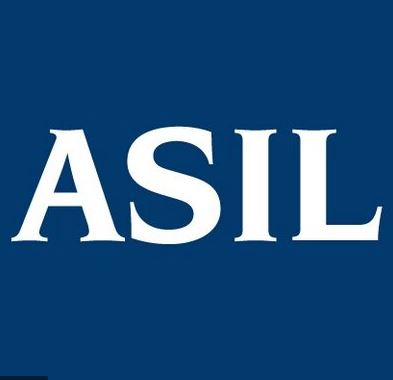
12 March 2021: ESIL & ASIL Joint Session on ‘At Home and Abroad – The European Union in a Changing Global Order’. The American Society of International Law and the European Society of International Law invited their members and colleagues from around the world to participate in a special sesión as part of the American Society of International Law’s 2021 Annual Meeting (24-26 March 2021).
The video of the event is available here.
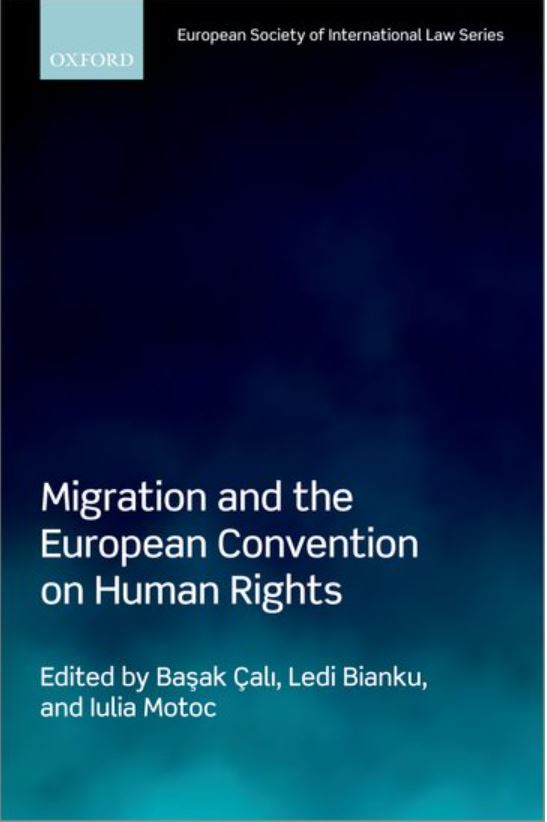
4 March 2021: ESIL & Centre for Fundamental Rights, Hertie School Online Book Launch New Volume in the ESIL Series: Migration and the European Convention on Human Rights Edited by Başak Çalı, Ledi Bianku, and Iulia Motoc. The participants were Christian Tams, editor in chief of the ESIL Series and Professor of International Law at the University of Glasgow, Cathryn Costello, codirector Centre for Fundamental Rights, Hertie School in Berlin, Başak Çalı, volume editor and codirector Centre for Fundamental Rights, Ledi Bianku, volume editor and former judge of the European Court of Human Rights (2008-2019), associate Professor Strasbourg University, Iulia Motoc, volume editor, judge of the European Court of Human Rights and Professor at the University of Bucarest, Yuval Shany editor of the ESIL Series and Hersch Lauterpacht Chair of International Public Law at the Hebrew University of Jerusalem and Vera Wriedt, PhD researcher at the Centre for Fundamental Rights, Hertie School.
The video of the book launch can be found here.
7. ESIL Reflections
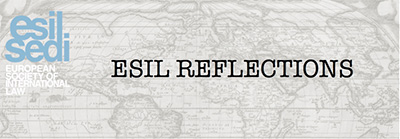
ESIL Reflections are short papers published on the website of the European Society of International Law (ESIL). ESIL Reflections offer up-to-date reflections on current issues in international law.
The Reflections cover a wide range of topics relating to current developments in international law and practice as well as theoretical reflections in a way that is relatively accessible to non-experts. The aim is to foster discussion between ESIL members and international law scholars and practitioners more generally – in Europe, but also beyond. ESIL Reflections are published online and distributed freely to ESIL members.
The editors are Federico Casolari, Patrycja Grzebyk, Ellen Hey, Guy Sinclair and Ramses Wessel (editor-in-chief).
ESIL Reflections are short papers (3000-4000 words) that argue one particular point that may trigger further debate in the scientific community. Extensive referencing is to be avoided. References are only necessary in case of direct citations or when new or less well-known works are mentioned.
Latest publications are:
- COVID-19 Series – The Security Council and COVID-19 – Towards a Medicalization of International Peace and Security by Pedro Villarreal
- COVID-19 Series – Security Council Resolution 2532 (2020) on COVID-19 A Missed Opportunity? By Ilja Richard Pavone
- COVID-19 Series – Malicious Cyber Operations against Health Infrastructure during the COVID-19 Pandemic and the Renvoi to Sovereignty in Cyberspace by Nicholas Tsagourias
8. News from Interest Groups

ESIL Interest Groups are a vital part of the Society’s success and activities. A list of the groups is available on the ESIL website.
On 12th January 2021, the ESIL Interest Groups came together for a virtual Zoom meeting, in lieu of the traditional IG Breakfast Meeting that takes place during the Annual Conference. The meeting began with a welcome to newly-elected Conveners. The virtual meeting was a valuable opportunity to exchange freely on the effects of the pandemic on the activities of the IG, as well as to review the recent revisions to the IG Policy Guidance.
During the meeting, a number of creative initiatives were discussed in the lead-up to the next Annual Conference in Stockholm. A potential exciting ‘IG Festival’ is also being considered in due course, either as an online initiative or as a physical gathering.
With 20 Interest Groups now active and running, the ESIL Interest Groups remain at the heart of the Society and its work, allowing for engagement on specialised areas of international law, the broadening of the Society into new areas of research and organising events in locations that the Society may not have yet been able to attend. Moreover, the Interest Groups remain a focal point for innovation, organising blended events, seminars and other intellectual activities within the aegis of the wider Society.
Interest Group Social Sciences and International Law
Recent developments in international legal scholarship indicate an increased interest in social sciences, such as (behavioural) economics, international political theory, and sociology, into the analysis of international law. These insights are used to analyse topics from a broad range of sub-fields, such as human rights, the law of the sea, investment law, the laws of war, environmental law, trade law, the role of adjudication, and the role of international organizations.
The creation of an ESIL interest group on Social Sciences and International Law establishes a forum in which members that draw on methodologies, concepts, theories, or experimental evidence from the social sciences can present their research, gain feedback from like-minded scholars, and broaden their knowledge of neighbouring disciplines. The IG has two objectives: (1) to further our understanding of how, when, and whether to integrate insights from social sciences in the analysis of international law and; (2) to stimulate debate regarding the benefits and limitations – from both a positive and normative perspective – to social sciences approaches to international law. If you are interested in becoming a member of the IG, please tick the box on your ESIL membership page.
Our Call for Papers for the pre IG-workshop of the annual conference in Stockholm can be found here
Our website: https://sites.google.com/view/esilsocialsciences/members
If you have any queries, don’t hesitate to contact a member of the co-ordinating committee (Veronika Fikfak, Daniel Peat, and Eva van der Zee).
Interest Group International Economic Law
We are happy to welcome you to the IG’s workshop on ‘The Value of Solidarity in International Economic Law’ at the 2021 ESIL Research Forum that will be held virtually on 15 April 2021. The programme is available here. Stay tuned for more details on how to attend the workshop online.
We will soon publish a call for papers for a IG’s pre-conference workshop as a side event of the 2021 ESIL Annual Conference to be held in Stockholm in September 2021. We are also planning other events: check regularly the ESIL IG’s webpage for more information!
Interest Group on Business and Human Rights
In the context of ESIL’s annual meeting to take place in Stockholm in September 2021, the Interest Group on Business and Human Rights is organising a workshop on ‘International Business and Human Rights: Changes in International Law-making’. The workshop will be held on 8 September 2021.

